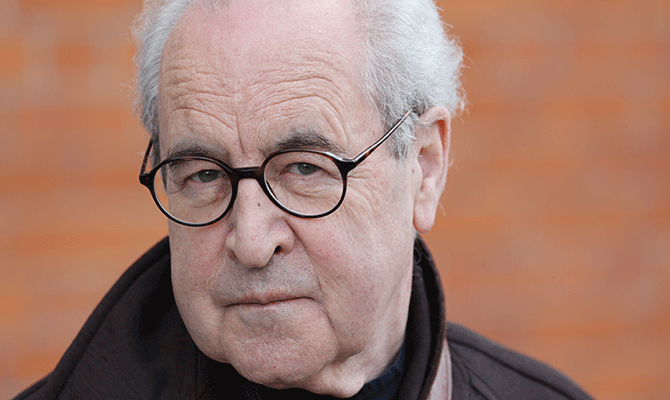

Ireland’s lush landscapes, rich history, and welcoming communities make it an attractive place for foreigners looking to invest in property. Whether you’re planning to relocate, retire, or simply own a holiday home, understanding Irish property laws is crucial before making a purchase. In this guide, we’ll explore everything you need to know about buying a house in Ireland as a foreigner, including tax implications, residency options, legal requirements, and hidden costs.
Are Foreigners Allowed to Buy Property in Ireland?
Yes! Ireland imposes no restrictions on foreigners buying property. Whether you’re an EU or non-EU citizen, you can purchase residential or commercial property in Ireland without special permissions. However, financing a property can be more challenging for non-residents, as many Irish banks require strong credit history and a larger deposit from foreign buyers.
How Long Can You Stay in Ireland If You Own Property?
Owning property in Ireland does not automatically grant residency or extended stay rights. If you are from the EU/EEA or Switzerland, you can stay in Ireland freely. However, non-EU nationals are typically allowed to stay for up to 90 days within a six-month period on a tourist visa.
If you’re looking for long-term residency, buying a house alone won’t qualify you for a visa. You’ll need to apply through other channels, such as a work visa, retirement visa, or the Irish Immigrant Investor Programme (which requires a substantial investment in the country).
Do I Need a PPS Number to Buy a Property in Ireland?
A Personal Public Service (PPS) number is required to buy a house in Ireland, as it is needed for tax purposes, including property tax and stamp duty payments. Non-residents can apply for a PPS number through the Department of Social Protection by providing:
- Proof of identity (passport)
- Proof of address (in Ireland or abroad)
- Documentation showing the need for a PPS number (such as a letter from your solicitor confirming a property purchase)
Do I Have to Pay Tax If I Buy a House in Ireland?
Yes, when buying a property in Ireland, you will be subject to several taxes:
- Stamp Duty – Payable at 1% on properties up to €1 million and 2% on any value above that.
- Local Property Tax (LPT) – An annual charge based on the market value of the property.
- Income Tax (if renting out your property) – If you rent out your property, rental income is subject to income tax, and non-residents must appoint a local tax agent.
Can I Buy a House in Ireland If I Don’t Live There?

Yes, non-residents can buy property in Ireland. There are no residency requirements to purchase a house. However, securing a mortgage as a non-resident can be difficult, as Irish banks often require larger down payments (up to 35%) and proof of strong financial standing.
If you’re buying a house in Ireland for cash, the process is much easier, as you can avoid financing hurdles and speed up the property acquisition timeline.
Can I Get Residency If I Buy Property in Ireland?
Buying a house in Ireland does not grant automatic residency. However, Ireland does offer an Immigrant Investor Programme for non-EU nationals who invest at least €1 million in Irish businesses or real estate. This can provide a pathway to residency.
For retirees, Ireland offers a Stamp 0 Visa, allowing self-sufficient retirees to live in Ireland if they meet the financial criteria (e.g., having a minimum annual income of €50,000 per person).
How Can a Foreigner Get a PPS Number in Ireland?
Foreigners can apply for a PPS number in Ireland by visiting a PPS Number Allocation Centre with:
- A valid passport
- Proof of address (can be outside Ireland)
- Evidence of a reason for needing a PPS number (such as a letter from a solicitor handling your property purchase)
If you are not residing in Ireland, you can still obtain a PPS number remotely with assistance from a tax agent.
Do Non-Residents Pay Property Tax in Ireland?
Yes, non-residents must pay Local Property Tax (LPT) on their Irish property. The amount varies based on the market value of the home, typically ranging from a few hundred to a few thousand euros annually.
If you rent out the property, non-residents also need to pay income tax on rental earnings. Non-EU landlords must appoint an Irish tax representative or allow the tenant to withhold 20% of the rent for tax purposes.
What Do I Need to Buy a House in Ireland?
A buying a house in Ireland checklist for foreigners includes:
- A solicitor – Needed to handle contracts and legal matters.
- A PPS number – Required for tax registration.
- A mortgage (if applicable) – If financing, Irish banks require a deposit of at least 30-35% for non-residents.
- Proof of funds – If buying a house in Ireland for cash, you must show evidence of funds.
- Stamp Duty – Set aside at least 1-2% of the purchase price.
- Additional fees – Budget for hidden costs of buying a house in Ireland, including solicitor fees, surveys, insurance, and local taxes.
How Long Does It Take to Buy a House in Ireland with Cash?
Cash purchases are faster because they don’t require mortgage approval. The buying process can be completed in 4-6 weeks, compared to 3-6 months with financing. However, factors such as legal paperwork, surveys, and due diligence may cause delays.
How Long is the Process of Buying a House in Ireland?
The process of buying a house in Ireland typically takes:
- With a mortgage: 3-6 months
- Buying a house in Ireland with cash: 4-6 weeks
- New builds: May take longer due to planning and construction timelines
Buying a House in Ireland from the UK
Post-Brexit, UK citizens can still buy property in Ireland without restrictions. However, UK buyers should note that residency rules have changed, and they can only stay in Ireland for up to 90 days without a visa.
For long-term stays, UK nationals must apply for an appropriate visa or permit.
Hidden Costs of Buying a House in Ireland
Aside from the purchase price, be aware of additional costs:
- Solicitor fees – €2,000-€5,000
- Surveyor fees – €300-€800
- Stamp Duty – 1-2% of the property price
- Property tax – Annual Local Property Tax (LPT)
- Insurance – Home and contents insurance required
Final Thoughts
Buying a house in Ireland as a foreigner is straightforward, but understanding the legal and tax implications is crucial. Whether you’re looking for a holiday home, investment property, or a place to retire, planning ahead will make the process smoother.
Want to learn more about Irish property and culture? Check out Secret Ireland for insights into Ireland’s history, myths, and lifestyle!





1 thought on “Buying a Home in Ireland: What Foreigners Need to Know About Irish Property Laws”
Comments are closed.